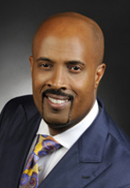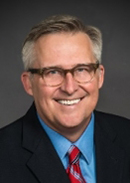Jimmy Carter pushes for interracial Baptist cooperation
DALLAS (RNS)—Pastors Frederick Haynes and George Mason both lead Baptist churches in Dallas, but they never met until the not-guilty verdict in the death of Florida teen Trayvon Martin brought them together in 2013.
 Frederick HaynesNow the two men—one the leader of a predominantly black megachurch, Friendship-West, the other of a mostly white congregation, Wilshire—have signed a “covenant of action” spearheaded by former President Jimmy Carter.
Frederick HaynesNow the two men—one the leader of a predominantly black megachurch, Friendship-West, the other of a mostly white congregation, Wilshire—have signed a “covenant of action” spearheaded by former President Jimmy Carter.
Carter, now 91, long has been known for building bridges between divided parties. But his work to bring Baptists of different races together on a national level is morphing into grass-roots attempts to address community needs.
About a dozen partnerships have been created by groups of Baptists from Alabama to Oklahoma—renovating campgrounds, mentoring youth, packing boxes at a food bank. The former president and a cohort of leaders are hoping the movement will grow to 100 by 2018.
 George Mason“What we are trying to do now with the New Baptist Covenant is to pair up African-American-dominated churches and white churches in the same community—or sometimes on the same street almost—to work together on projects that are good for the low-income people in that neighborhood,” Carter said.
George Mason“What we are trying to do now with the New Baptist Covenant is to pair up African-American-dominated churches and white churches in the same community—or sometimes on the same street almost—to work together on projects that are good for the low-income people in that neighborhood,” Carter said.
Haynes and Mason wrote an op-ed article on reducing payday loan businesses in Dallas. Recently, staffers of Haynes’ mostly black church, which once had about 20 payday loan businesses within a five-mile radius, trained Mason’s historically white church on ways to block them. And now they are spending time together on racial reconciliation activities, including studying the Bible and sharing a meal that emphasized privilege.
No “kumbaya moment”
“There were some who received more food than others, and some received nothing, and I think that was an eye-opening piece for many who were there,” said Haynes, who said the work of the two churches has moved beyond “feel-good” experiences. “What makes this effort different is that we are refusing to settle for a kumbaya moment.”
Carter, who is scheduled to keynote a training meeting of the New Baptist Covenant in Atlanta in mid-September, said he originally was moved to bring black and white Baptists together because they once met together in the Triennial Convention in the 1800s, before the Southern Baptist Convention broke off in a dispute over slaveholding missionaries. As a child, he grew up with African-American playmates who helped him gain an understanding of “some of the problems of legalized racial segregation.”
After leaving the White House, he later distanced himself from the Southern Baptist Convention over its 2000 decision to bar women from the pastorate. He has worked with more moderate Baptist leaders to found the New Baptist Covenant movement, bringing 15,000 people together for an Atlanta meeting in 2008.
Sighed too early
His continuing hopes for greater Baptist and interracial cooperation come, he said, after the country may have prematurely thought racial reconciliation was achieved after the civil rights movement victories of the 1960s.
“I think that was a sigh of relief too early because we rested on our laurels, and now we’ve found out in the last year or two, very vividly with the police attacks on innocent black young people, that we still have a long way to go in this country,” Carter said.
Carter and other leaders say the fact that many churches have not worked together—across racial or other lines—often is more a matter of inertia than of animosity.
“We actually know each other, but we don’t cooperate with each other,” said Carter, citing the example of the 11 churches in his hometown of Plains, Ga., that tend to come together mostly for Christmas concerts.
PNBC involvement
James C. Perkins, president of the historically black Progressive National Baptist Convention, said he will encourage greater participation of his churches with New Baptist Covenant to achieve more social-justice progress and foster improved racial understanding.
“The more we come together to get to know one another, the easier it becomes to talk about these touchy, volatile issues that impact the quality of life, not just in our congregations but across the nation,” he said.
About half a dozen predominantly black Progressive National Baptist congregations have committed to covenants of action. A PNBC state convention in Georgia and its counterpart in the mostly white Cooperative Baptist Fellowship are working together to repair an interfaith campground for joint youth retreats. And Oklahoma members of both of those national groups have joined with the Oklahoma Indian American Baptist Association to provide tablet computers to elementary schools.
Hannah McMahan, executive director of New Baptist Covenant, works in an office the movement leases from the PNBC at its Washington headquarters. She will travel to annual meetings of some Baptist groups this summer to encourage expanded involvement.
Mason expects the movement will grow in part because of the inspiration and motivation by Carter.
“His vision of the Baptist movement is that it be a movement of reconciliation,” Mason said. “It’s easier to get a lot of people to the table when he’s the convener.”